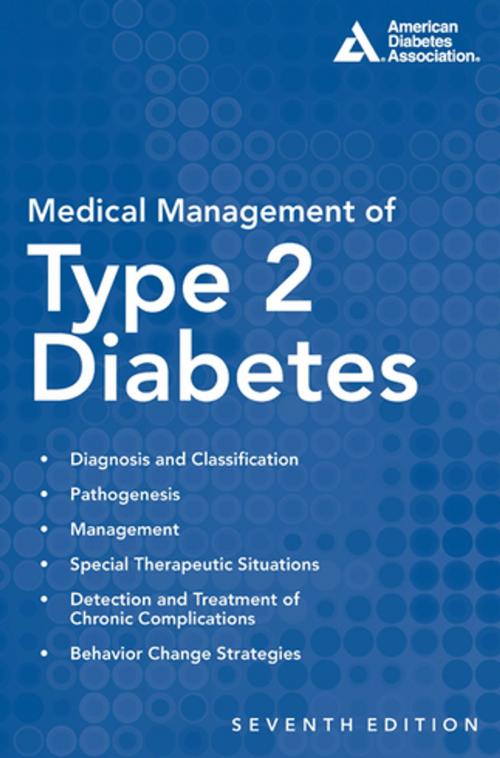Medical Management of Type 2 Diabetes
Nonfiction, Health & Well Being, Medical, Specialties, Internal Medicine, Endocrinology & Metabolism, Health, Ailments & Diseases, Diabetes, Reference| Author: | ISBN: | 9781580404914 | |
| Publisher: | American Diabetes Association | Publication: | June 5, 2012 |
| Imprint: | American Diabetes Association | Language: | English |
| Author: | |
| ISBN: | 9781580404914 |
| Publisher: | American Diabetes Association |
| Publication: | June 5, 2012 |
| Imprint: | American Diabetes Association |
| Language: | English |
As type 2 diabetes continues its rise in prevalence worldwide, there is an increasing need to study it and describe successful treatments. There are several options for treatment, including oral medications, diet and lifestyle modification, and insulin therapy. Knowing which method to select and how to apply it relies on several clinical guidelines that are updated every year by the American Diabetes Association.
This new edition of Medical Management of Type 2 Diabetes provides care providers with the answers to their questions about implementing care. All of the contributors are experts in their fields, and they define the disease, including the progressive nature of type 2 diabetes; cardiovascular, microvascular, and neurological complications; care methodologies for special situations; and behavior change. All guidelines and standards have been updated with the latest developments in research, advances in medications and medical devices, and new understandings of how to effectively work with the patient.
As type 2 diabetes continues its rise in prevalence worldwide, there is an increasing need to study it and describe successful treatments. There are several options for treatment, including oral medications, diet and lifestyle modification, and insulin therapy. Knowing which method to select and how to apply it relies on several clinical guidelines that are updated every year by the American Diabetes Association.
This new edition of Medical Management of Type 2 Diabetes provides care providers with the answers to their questions about implementing care. All of the contributors are experts in their fields, and they define the disease, including the progressive nature of type 2 diabetes; cardiovascular, microvascular, and neurological complications; care methodologies for special situations; and behavior change. All guidelines and standards have been updated with the latest developments in research, advances in medications and medical devices, and new understandings of how to effectively work with the patient.















